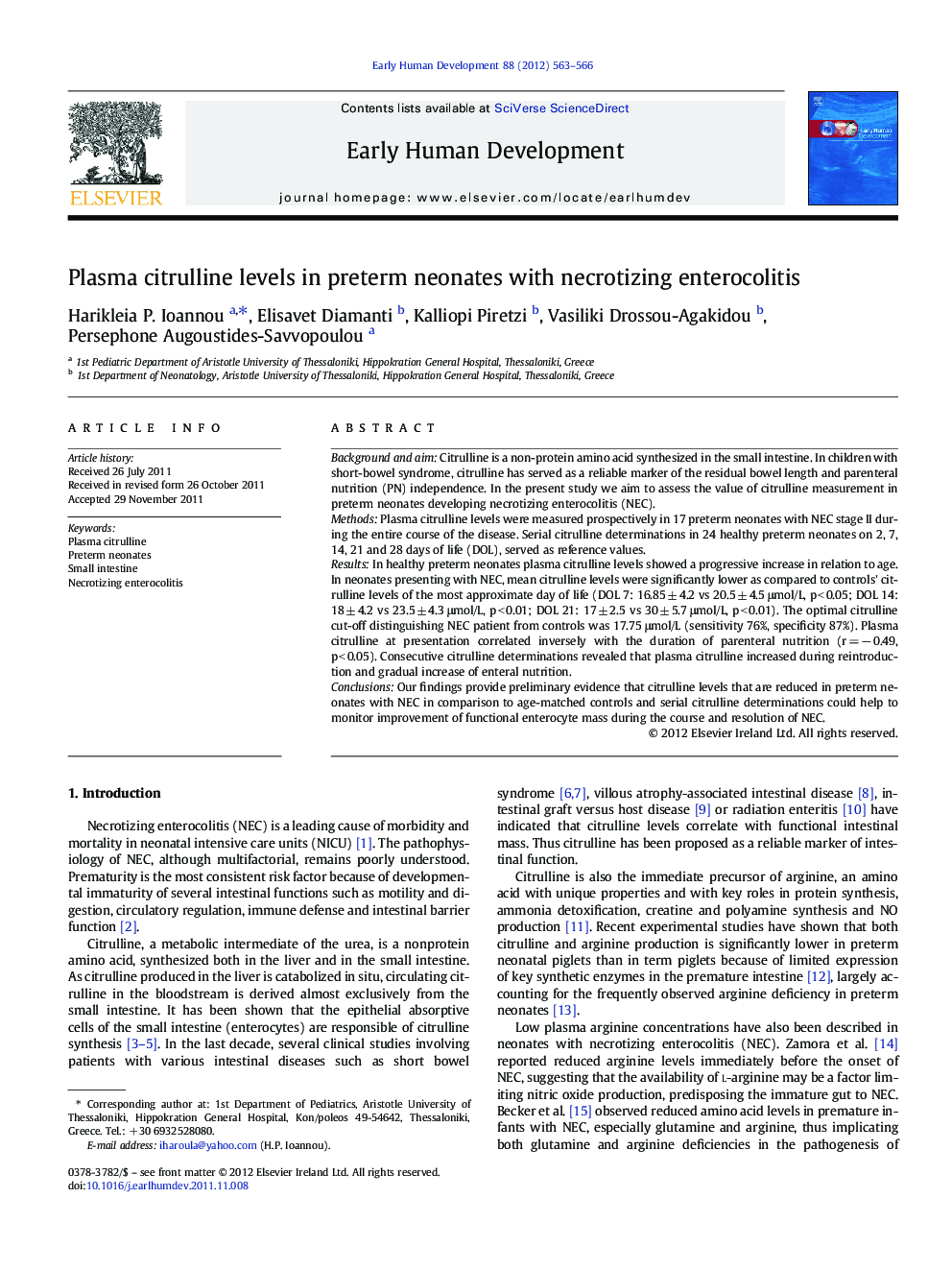| Article ID | Journal | Published Year | Pages | File Type |
|---|---|---|---|---|
| 6172137 | Early Human Development | 2012 | 4 Pages |
Background and aimCitrulline is a non-protein amino acid synthesized in the small intestine. In children with short-bowel syndrome, citrulline has served as a reliable marker of the residual bowel length and parenteral nutrition (PN) independence. In the present study we aim to assess the value of citrulline measurement in preterm neonates developing necrotizing enterocolitis (NEC).MethodsPlasma citrulline levels were measured prospectively in 17 preterm neonates with NEC stage II during the entire course of the disease. Serial citrulline determinations in 24 healthy preterm neonates on 2, 7, 14, 21 and 28 days of life (DOL), served as reference values.ResultsIn healthy preterm neonates plasma citrulline levels showed a progressive increase in relation to age. In neonates presenting with NEC, mean citrulline levels were significantly lower as compared to controls' citrulline levels of the most approximate day of life (DOL 7: 16.85 ± 4.2 vs 20.5 ± 4.5 μmol/L, p < 0.05; DOL 14: 18 ± 4.2 vs 23.5 ± 4.3 μmol/L, p < 0.01; DOL 21: 17 ± 2.5 vs 30 ± 5.7 μmol/L, p < 0.01). The optimal citrulline cut-off distinguishing NEC patient from controls was 17.75 μmol/L (sensitivity 76%, specificity 87%). Plasma citrulline at presentation correlated inversely with the duration of parenteral nutrition (r = â 0.49, p < 0.05). Consecutive citrulline determinations revealed that plasma citrulline increased during reintroduction and gradual increase of enteral nutrition.ConclusionsOur findings provide preliminary evidence that citrulline levels that are reduced in preterm neonates with NEC in comparison to age-matched controls and serial citrulline determinations could help to monitor improvement of functional enterocyte mass during the course and resolution of NEC.
